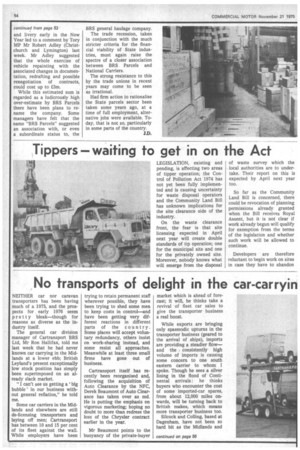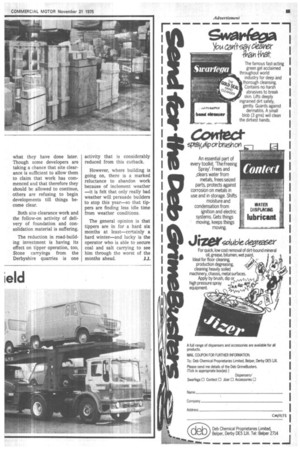Tippers waiting to get in on the Act
Page 60

Page 61

If you've noticed an error in this article please click here to report it so we can fix it.
LEGISLATION, existing and pending, is affecting two areas of tipper operation; the Control of Pollution Act 1974 has not yet been fully implemented and is causing uncertainty for waste disposal operators and the Community Land Bill has unknown implications for the site clearance side of the industry.
On the waste clearance front, the fear is that site licensing expected in April next year will create double standards of tip operation; one for the municipal site and one for the privately owned site. Moreover, nobody knows what will emerge from the disposal of waste survey which the local authorities are to undertake. Their report on this is expected by April next year too.
So far as the Community Land Bill is concerned, there could be revocation of planning permissions already granted when the Bill receives Royal Assent, but it is not clear if work already begun will qualify for exemption from the terms of the legislation and whether such work will be allowed to continue.
Developers are therefore reluctant to begin work on sites in case they have to abandon what they have done later. Though some developers are taking a chance that site clearance is sufficient to allow them to claim that work has commenced and that therefore they should be allowed to continue, others are refusing to begin developments till things become clear.
Both site clearance work and the follow-on activity of delivery of foundation and consolidation material is suffering.
The reduction in road-building investment is having its effect on tipper operation, too, Stone carryings from the Derbyshire quarries is one activity that is considerably reduced from this cutback.
However, where building is going on, there is a marked reluctance to abandon work because of inclement weather —it is felt that only really bad weather will persuade builders to stop this year—so that tippers are finding less idle time from weather conditions.
The general opinion is that tippers are in for a hard six months at least—certainly a hard winter—and lucky is the operator who is able to secure coal and salt carrying to see him through the worst of the months ahead. J.J.








































































































